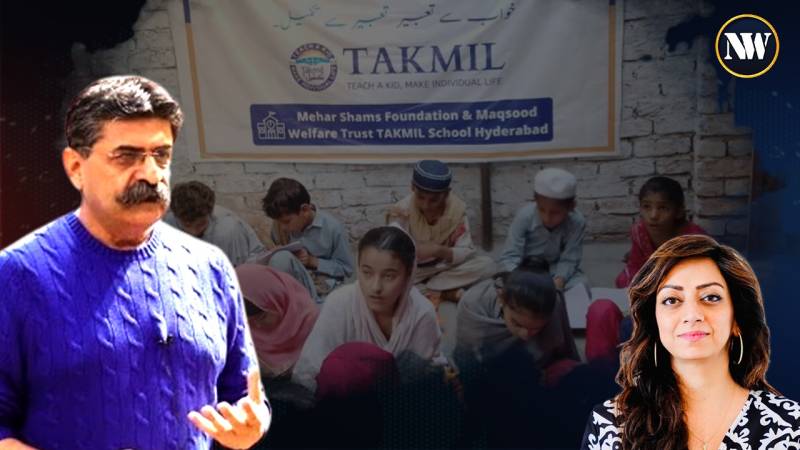In a world where access to education is often taken for granted, there are still millions of children who are deprived of this fundamental right. Dr. Shahid Qamar, a visionary educator and social entrepreneur, is on a mission to change this narrative through his groundbreaking initiative, TAKMIL (Teach a Kid, Make Individual Life a TM Program). In a recent interview, Dr. Qamar shared insights into the inception, development, and impact of TAKMIL, offering a glimpse into the transformative power of education in remote areas of Pakistan.
Dr. Qamar's journey with TAKMIL began with a profound realization of the stark educational disparities prevalent in remote regions of Pakistan. Motivated by his own privileged upbringing and educational opportunities, Dr. Qamar felt compelled to address the plight of millions of children who lacked access to schooling due to geographical isolation, lack of infrastructure, and socio-economic barriers. Thus, TAKMIL emerged as a beacon of hope for these underserved communities, offering a lifeline through education.
At the heart of TAKMIL lies an innovative educational model that challenges traditional norms and accelerates the learning process. Dr. Qamar's background in science and research-informed his approach, leading him to condense the primary school curriculum from five years into just one. Leveraging the critical period of brain development in children, TAKMIL aims to maximize educational outcomes by providing intensive yet comprehensive instruction tailored to the unique needs of students in remote areas.
Technology plays a pivotal role in TAKMIL's implementation, enabling access to education in areas with limited infrastructure. Dr. Qamar's utilization of tools like Raspberry Pi and solar panels revolutionizes the delivery of curriculum content, overcoming challenges posed by the absence of electricity and internet connectivity. Through innovative solutions, TAKMIL transforms traditional classrooms into hubs of learning, empowering students to thrive despite geographical constraints.
Central to TAKMIL's success is its emphasis on community engagement and partnership. Dr. Qamar recognizes the importance of grassroots involvement in addressing local challenges and fostering sustainable change. Local coordinators and regional teams work hand-in-hand with community members to identify children in need of education and establish TAKMIL schools in remote areas. This collaborative approach ensures that TAKMIL remains responsive to the needs and aspirations of the communities it serves, driving meaningful impact at the grassroots level.
The organizational structure of TAKMIL reflects its decentralized and inclusive ethos. With teams and coordinators stationed across various regions of Pakistan, TAKMIL operates as a network of dedicated individuals committed to expanding educational opportunities. This decentralized model enables efficient management and effective delivery of educational services, empowering communities to take ownership of their educational journey.
TAKMIL's impact extends far beyond the classroom, earning recognition for its transformative work in underserved communities. The initiative has touched the lives of thousands of students, offering them a pathway to a brighter future. Dr. Qamar's unwavering dedication to the cause has garnered accolades, including acknowledgment from the Biden administration for TAKMIL's social and community work. Such recognition underscores the significance of TAKMIL's mission and the tangible change it brings to marginalized populations.
Looking ahead, Dr. Qamar remains steadfast in his commitment to TAKMIL's vision of universal education. He envisions a future where every child, regardless of their circumstances, has access to quality education and opportunities for growth. With a focus on long-term sustainability and scalability, TAKMIL aims to expand its reach and impact, ensuring that no child is left behind in the journey towards educational equity.


